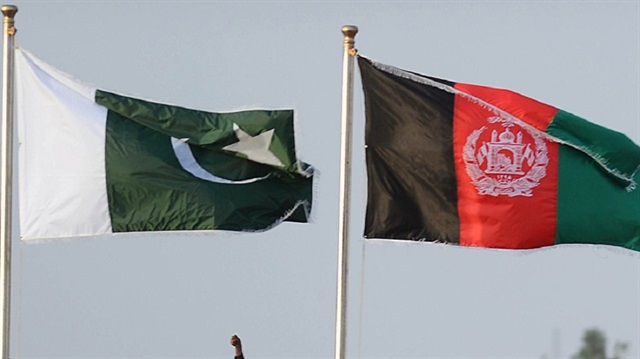
Pakistan on Friday reopened a key trade route with neighboring Afghanistan after a gap of three years -- a move that was warmly welcomed by the country’s business community.
Ghulam Khan Crossing -- one of the 18 border crossings between the two countries that connects Pakistan’s northwestern North Waziristan tribal region with northeastern Khost province of Afghanistan -- was closed in 2014 following military operations against the Taliban and affiliated armed groups in the region.
In a statement, the political administration of North Waziristan tribal agency said the first trade convoy had been dispatched to Afghanistan after a lapse of three years.
“Restoration of trade activities via Ghulam Khan border is not only in the national interest but it will open new economic opportunities for the people of North Waziristan,” the statement said.
“This is also a message of peace and friendship between the two brotherly countries.”
The move came after a nearly 50 percent reported decrease -- from $2.7 billion to $1.4 billion -- in bilateral trade between the two countries in the last two years.
Authorities said the road between Miranshah -- the capital of North Waziristan -- and Ghulam Khan town, which sits near Afghanistan border, has also been reopened for transportation of trade goods between the two countries.
North Waziristan is one of Pakistan’s seven semi-autonomous tribal regions, which had been a stronghold of Tehrik-e-Taliban Pakistan (TTP), a consortium of several militant groups in the country before the launch of a full-scale military onslaught in 2014. Pakistan army claims that 95 percent of the area has been cleared of militants.
Escalating diplomatic tensions and frequent border closures have had a chilling effect on Pakistan-Afghanistan trade in recent years.
The volume of trade between landlocked Afghanistan and its southern neighbor have been mostly affected by terrorist attacks in Pakistan that Islamabad blames on Afghanistan-based militants, which in turn led to the closure of border crossings.
Northwestern Torkham, and southwestern Chaman, two key borders which respectively connect northeastern and southern Afghanistan, had remained closed for several months at different times since 2014.
The months-long closure of border crossings led to huge losses for traders, as well as seeing thousands of people, mostly Afghans, stranded on the wrong side of the frontier.
Relations between the two neighbors have been rocky in recent years as both sides accuse each other of supporting and providing sanctuaries to the militants.
Pakistan’s business community has welcomed the much-awaited move.
“This is a wise step, which should have been taken much earlier,” Pakistan-Afghanistan Joint Chamber of Commerce Chairman Zubair Motiwala told Anadolu Agency.
Hoping the move will give a boost to an otherwise dwindling trade, Motiwala said opening of borders would not only improve trade but also melt the frosty ties between the two countries.
“The trade volume hit a record $2.7 billion in 2015 and it could have touched $5 billion easily if the trade had not been mixed up with politics,” he added.
Trade between the neighbors is conducted under the Afghanistan-Pakistan Transit Trade Agreement, a bilateral deal signed in 2010.
The current trade volume, according to the chambers of commerce, is hugely weighted towards Pakistan, which is said to have an 80 percent share.















